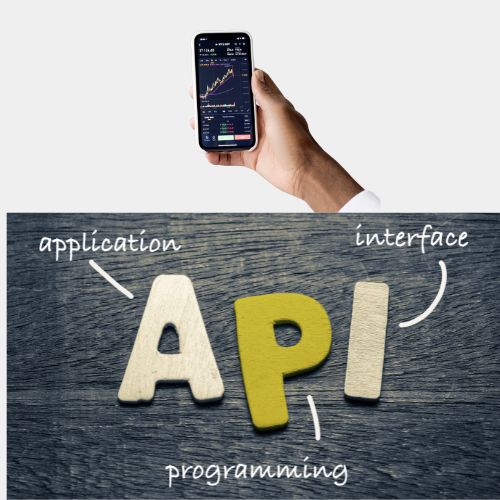In a world where milliseconds can decide profit or loss, API (Application Programming Interfaces) trading platforms have become the go-to tool for tech-savvy traders.
If you are building a custom dashboard or just want faster trade execution, APIs open the way to a fully programmable trading experience. In this blog, we will break down what separates a good trading API platform from the rest.
1. Seamless Account & Order Management
Every trading API is built around one primary function: placing and managing orders. The platform should allow you to:
- Place market, limit, stop-loss, and cover orders.
- Modify or cancel open orders in real-time.
- Track live order status (pending, executed, rejected, etc.)
This is non-negotiable. If you are running an algorithm or manually pushing trades through code, speed and reliability in order management remain a core requirement.
2. Live Market Data Streaming
If your decisions are highly influenced by real-time price action, you need live feeds that don’t lag. Most top API platforms offer:
- Live tick-by-tick data for equities, derivatives, commodities, and currency.
- Depth of market (Level 2) data for order book visibility.
- WebSocket-based data streams for ultra-low latency updates.
The key is consistency and uptime. A great strategy can fall flat if the feed lags even a few seconds during high-volume periods like market openings or major announcements.
3. Historical Data Access
Backtesting is the soul of quantitative trading. A robust API trading platform will give you access to:
- Daily OHLC (Open, High, Low, Close) data.
- Minute or tick-level data for short-term strategies.
- Multiple timeframe aggregation (5-min, 15-min, hourly, etc.)
This allows developers to simulate strategies on past data. In fact, it helps reduce the risk of costly mistakes before going live.
4. Authentication & Security
No matter how advanced your bot or platform is, security comes first. Indian brokers usually enforce:
- API key + secret key-based authentication.
- Two-factor authentication (2FA) for login flows.
- Session tokens with limited validity and refresh cycles.
Make sure the platform you choose follows security best practices. It should protect user credentials and prevent unauthorized order placements.
5. Developer-Friendly Documentation & SDKs
A powerful API is useless if you can’t figure out how to use it. Leading brokers understand this and provide:
- Clean, well-structured API documentation.
- Postman collections for testing endpoints.
- SDKs in Python, Node.js, Java, and other popular languages.
The faster you get started, the faster you go live. For developers, this can save hours of trial and error.
6. Paper Trading
Before deploying a real-money strategy, it is smart to test everything in a controlled environment. Some brokers offer a sandbox API, where:
- You can place test orders without risking capital.
- You can simulate real-time market conditions.
- You get to debug your strategy flow safely.
Though not all brokers in India offer this feature yet, it is a big plus for API-first traders building scalable systems.
7. Cost, Rate Limits, and Throttle Policies
It is not just about features; it is also about freedom. Look out for:
- API usage costs (some are free, others charge monthly)
- Rate limits on API calls per minute/hour.
- Throttling on order placements or market data fetches.
If you are building high-frequency strategies, these limits can seriously impact performance. Make sure you understand the platform’s rate restrictions upfront.
Final Thoughts
API trading platforms in India have come a long way, evolving from niche developer tools to essential infrastructure for modern trading. Whether you are coding your own options strategy or building a retail-focused fintech app, APIs offer the flexibility and speed needed to move beyond traditional trading interfaces.
However, technology alone won’t guarantee success. It is your strategy, timely execution, and disciplined risk controls that truly lead to better outcomes. Opt for an API platform that not only handles your code but also actively permits your trading ambitions and scalability.


